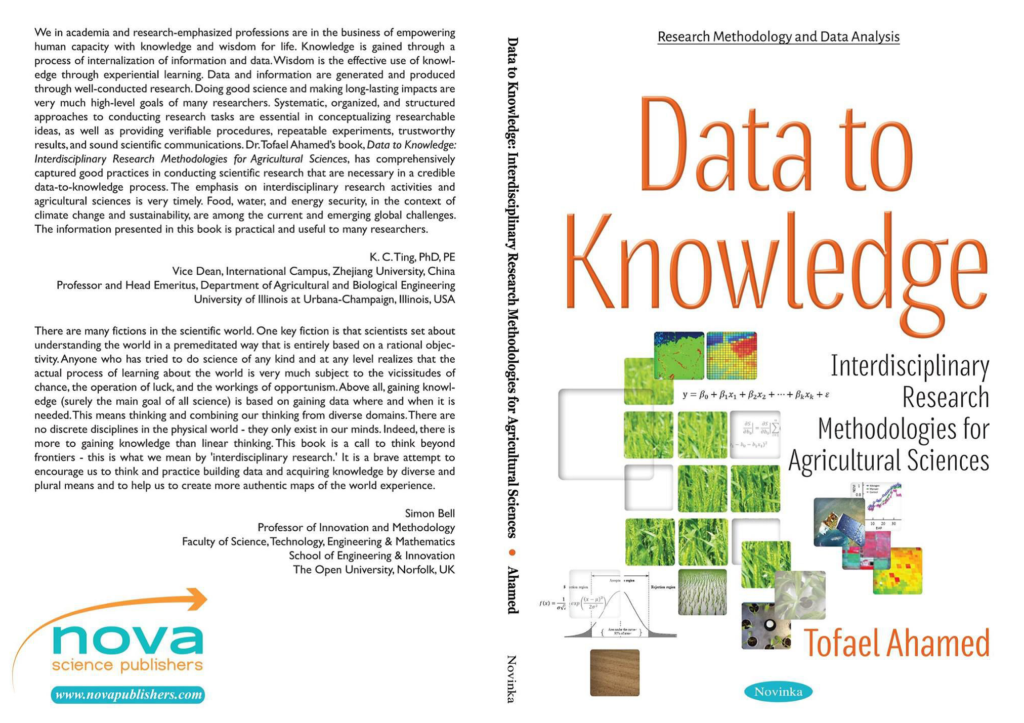
ISBN: 978-1-53612-394-4
Publisher: NOVA Science Publishers, New York, USA, 254 pages, 2017 [In Press]
Foreword: Prasanta K. Kalita, Professor, University of Illinois at Urbana-Champaign, USA.
Comments: KC Ting, Professor, University of Illinois at Urbana-Champaign, USA and Simon Bell, Professor, Open University UK
This book provides a sound understanding for creating new knowledge, which takes three main forms: Exploratory research, which structures and identifies new problems; Constructive research, which develops solutions to a problem; and Empirical research, which tests the feasibility of a solution using empirical evidence. This book encompasses both qualitative and quantitative research and analysis. The reader should gain an understanding of the skills needed to design and undertake a research project, including legal and ethical requirements in planning research projects, choosing the best experimental design and analytical methods, and how to present data for the extension to the wider community and establish the knowledge. Hands-on exercises are provided to improve reasoning skills, emphasizing agricultural problems and issues to solve and interpret the experimental data to knowledge. The book covers research methods within these three forms with basic knowledge of research methodology. The design of experiments and significant results are interpreted through the scientific organization and information in each of the chapters. The inherent discussion should help interdisciplinary graduate students and researchers accomplish their scientific experiments and write research articles. The cognitive writing style to interpret the observed data from experiments and surveys is emphasized in this book. The cognitive summary for each of the chapters is provided in the form of wording and graphics to focus the chapter highlights and use of analytical tools in the research. Utmost care is taken to present a varied range of research problems along with their solutions in agriculture and allied fields, which should be of immense use to readers.

